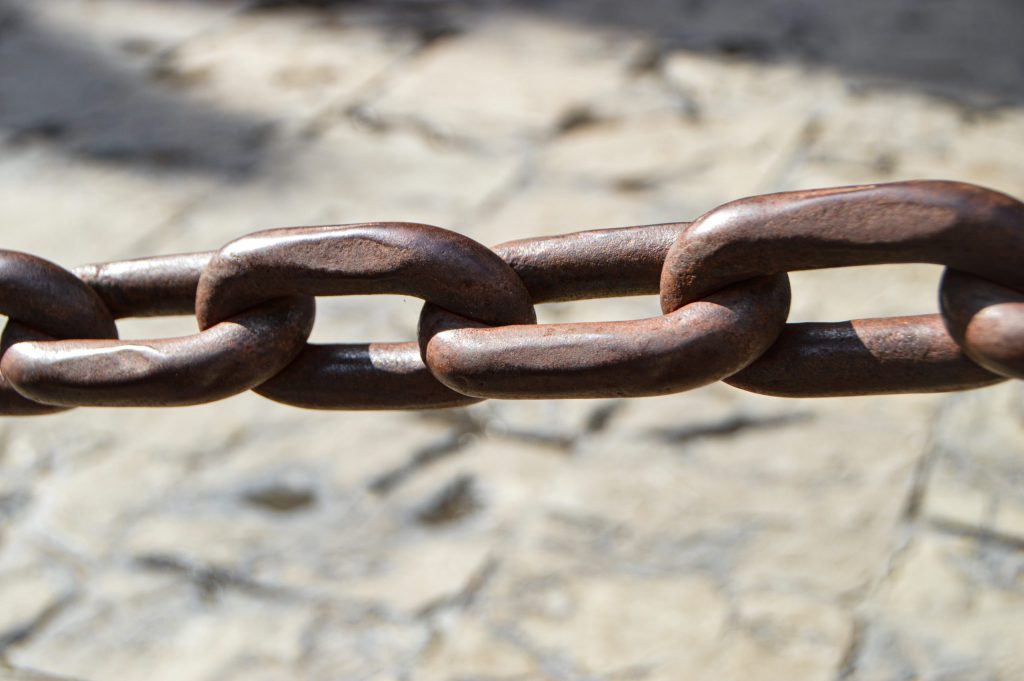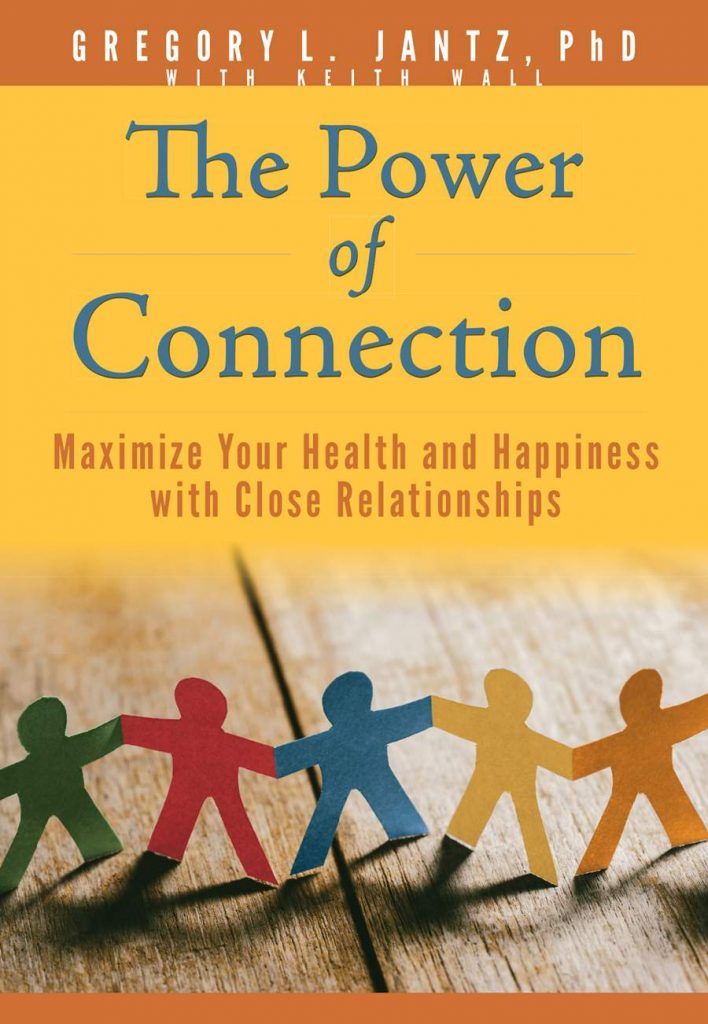“Connection with others is helpful and healthy in every aspect of our lives. Our links create a close-knit community, and within that context, we can provide for the needs of others and receive help for our own necessities.”
By Gregory L. Jantz, adapted from the book The Power of Connection
What happens when you get your hand too close to a flame? Instantly, you draw your hand back. It’s immediate and reactive. You get as far away from the source of the pain as you can.
This reaction to physical pain is natural. And it also can be our reaction to emotional pain. When emotionally wounded, we tend to draw back into ourselves. We become suspicious of other people. We even become suspicious of our own motives and decisions. So we withdraw—an expected and common response.
As little ones, we were wounded—perhaps by parents who didn’t give us what we needed emotionally or, in the worst case, abandoned or abused us. Or maybe we were exposed to trauma. Over time, we developed patterns of relating to people based on self-protection, safety, and security. We tend to isolate, take care of ourselves, and be an island unto ourselves. Left alone in our pain, we are cut off from the healing touch that comes from our relationships.
Connection with others is helpful and healthy in every aspect of our lives. Our links create a close-knit community, and within that context, we can provide for the needs of others and receive help for our own necessities.

Open the Doors to Healing
So why is it that when we need people the most, we tend to withdraw? Several factors reinforce our belief that it’s better for us to be alone with our pain:
• We think others won’t understand what we’re going through
• We’re distrustful of others because we’ve been hurt by people in the past who broke our trust
• We’re unwilling to forgive those who have caused us pain
• We’re so depleted that we think we have nothing to give to another person
• We don’t believe we deserve to be loved
Whatever reason for withdrawing, we only compound our pain by denying others the opportunity to come alongside with encouragement and support. Instead of remaining distant, we can choose instead to connect with others and open the doors for the healing touch we need.
We need to be open and honest with each other about the pain in our lives. We need to be willing to ask for help and support. When asked, we need to be willing to provide these as well. By forming connections, we can mend our broken hearts, exchange loneliness for companionship, and participate in the double blessing of helping others to heal and being healed ourselves.

Four Steps Toward More Authentic Relationships
Connection happens when two people are real and transparent with each other. But it can be difficult to develop authenticity in new relationships or unfamiliar situations. You may worry that your real self isn’t good enough or appropriate for the situation at hand. You might also fear rejection if you are vulnerable.
So instead of being yourself, you might be tempted to present yourself as the person you think others will accept and like. Although adapting to your environment is beneficial in some situations, completely shifting your personality creates problems. People can tell if you aren’t being authentic, and that limits a heart-to-heart connection.
People are attracted to authenticity. It makes us feel comfortable, safe, and respected. Here are four strategies to help you be your most authentic self:
- Be keenly self-aware. As you meet new people, engage in work meetings, and spend time with different social groups, observe how you feel in each situation. Learning to be more self-aware will allow you to recognize when you are feeling uncomfortable, understand why, and signal to yourself to intentionally draw upon your authentic self.
- Be present. We are bombarded by distractions almost constantly, diverting our attention from the people we are with. Our minds wander, our focus shifts, our alert listening slackens. Strive to be fully present in your conversations and relationships. Be an active listener, make eye contact, and give people your full attention. Mastering the art of presence is perhaps the single most effective way to ensure authenticity in any situation.
- Seek to be open and vulnerable—at the proper time. When it comes to divulging sensitive personal information, some people like to dump their problems and life story onto another person. In their eagerness to be open and honest, they might rush to bare their souls too quickly. Sharing vulnerable thoughts and feelings should happen slowly as trust is developed. Intimate aspects of our lives should be ladled out judiciously rather than dumped out hastily.
- Find people who share your desire for authenticity. You can be genuine at all times and with anyone. But for a deep connection to be formed with someone, that person must also want a genuine, heart-level relationship. It’s not always easy to be vulnerable with another person, but the process begins with the desire and willingness to be real together.

You’ve been reading from
The Power of Connection by Gregory L. Jantz, Ph.D with Keith Wall
Loneliness and isolation are serious problems with real and often devastating consequences—including increased suicide risk. Their ramifications deeply affect everyone in our society. In The Power of Connection, explore why connection matters so much, what the absence of connection means for the world, and how to create more of it in our lives.
Dr. Gregory Jantz believes the payoff for pursuing human connection is well worth the investment, with the rewards being greater health, well-being, resilience, purpose, spirituality, and enjoyment of life. He inspires us to be genuinely better together, and more available to each other.
Accept this invitation to nurture relationships in which ideal qualities can truly shine: compassion, kindness, humility, gentleness, patience,
forgiveness, and love. Find strategies for genuine connection to heal wounds, find comfort in each other, and build a healthier future for our society. In this book, you will learn:
• Steps toward more authentic relationships
• Conditions for connection
• Strategies for deeper connections
• Ways to be a great friend
About the Author
Mental health expert Dr. Gregory Jantz pioneered whole-person, holistic care. Now recognized as one of the leaders in holistic treatment, Dr. Jantz continues to identify more effective, cutting-edge forms of treatment for people struggling with eating disorders, depression, anxiety, and trauma. He is the founder of The Center: A Place of Hope, which was voted one of the top 10 facilities in the United States for the treatment of depression.
Dr. Jantz is a bestselling author of more than 37 books. He is a go-to media source for a range of behavioral-based afflictions, including drug and alcohol addictions. Dr. Jantz has appeared on CNN, FOX, ABC, and CBS and has been interviewed for the New York Post, Associated Press, Forbes, Family Circle, and Woman’s Day. He is also a regular contributor to Thrive Global and Psychology Today blogs. Visit www.aplaceofhope.com and www.drgregoryjantz.com.


